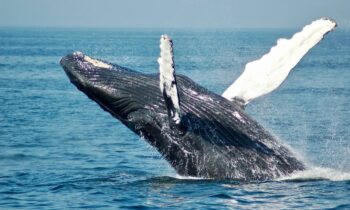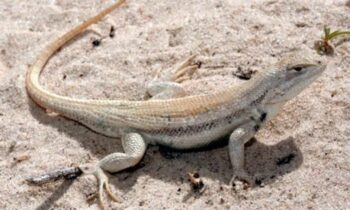While Halloween is half a month away, natural life specialists all through the nation believe people in general should realize that there’s a particular enhancement that could present risks for birds, bugs and different creatures, when set up outside.
In Nebraska, authorities with the Nebraska Natural life Schooling bunch are cautioning occupants that phony cobwebs can catch hummingbirds, owls, butterflies, honey bees and little critters.
“Frequently the animals traveling through the hedges or trees brightened with this material can get found out, bringing about the creatures passing on from injury, starvation or predation except if they are protected and restored,” Golden Schiltz, break division chairman of the Nebraska Game and Stops Commission’s (NGPC) Fish and Untamed life Training Division, wrote in an email to Fox News Advanced.
HALLOWEEN Stylistic theme Multitudes Racks IN SUMMER, AND Virtual Entertainment Clients SOUND OFF: ‘ ALREADY?!’
Engineered cobweb enhancements are made with plastic-based materials that aren’t biodegradable, which could represent a danger to natural life assuming breezes blow the phony webbing to different regions, as indicated by Schiltz.
She noticed that phony cobwebs additionally don’t break as effectively when contrasted with genuine cobwebs.
Schiltz wrote that these decorations made of spider webs “trap creatures by entangling their wings and limbs.”
Halloween celebrants regularly hang counterfeit cobwebs on the outside of their homes or arranging each fall.
Creature care specialists with the Nebraska Untamed life Recovery in Omaha have noticed adolescent squirrels getting caught in counterfeit cobwebs when parent squirrels utilize the brightening material in tunnels for winter settling, as per Schiltz.
According to Schiltz, a rise in the number of entangled animals and insects, including warblers, hummingbirds, screech owls, dragonflies, and butterflies, has been observed in wildlife rehabilitation centers across the nation in recent years.
The hazardous traps are occurring on the grounds that the Halloween-adorning season “covers with key relocation periods,” which influences animals who “depend on metropolitan regions as a feature of their natural surroundings,” she made sense of.
Measurements on the number of creatures and bugs that are caught in counterfeit cobwebs aren’t promptly accessible, yet natural life specialists and ecological guard dogs have likewise made declarations about the perils the embellishments posture to little untamed life.
On Saturday, September 2, the people in charge of the Facebook page Help Save Our Hummingbirds HSOH, which has 56,000 followers, issued a warning.
“Halloween is quick drawing closer. “Please be careful with your outdoor decorations,” the group wrote.
CHRISTMAS Vehicle Beautifications: WHAT YOU Really want TO Be aware TO BE Classy AND SAFE
“The phony webbing is horrendously perilous for natural life. Counterfeit spiderweb enrichments kill birds. Catching an owl and incurs significant damage each October on little birds is sufficient. They get messed up in it and can’t get out, hence prompting a sluggish, anguishing passing,” the post goes on.
“In hotter environments, blossoms might in any case sprout, and honey bees are still out, the phony webbing can be destructive to them as well, as well as butterflies yet moving hummingbirds.”
According to an article titled “Keep Halloween Safe for Wildlife,” WildCare, a nonprofit organization and wildlife hospital in San Rafael, California, treats dozens of animal patients for entanglement injuries.
To reduce the risk of entanglement, the wildlife hospital advises home decorators not to use fake spider webs when installing garden netting or webbing in yards.
WildCare advises home decorators to check their webbing or netting twice daily for stuck animals if fake webs or nets are already set.
According to the school’s “Wildlife Friendly Halloween Decorations” for 2020, the College of Veterinary Medicine – Wildlife Medical Clinic at the University of Illinois Urbana-Champaign also advises Halloween decorators to avoid using fake spider webs.



